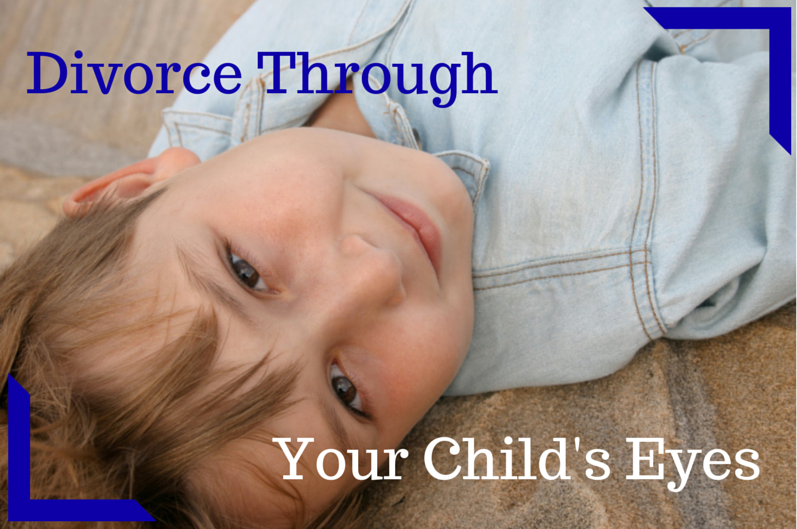Divorce Through the Eyes of Your Child

When marriages end, couples often disagree about lots of things. They are concerned and filled with emotions and worries. The one thing that couples do agree upon is doing what is best for the children.
The challenge surfaces when parents do not agree upon what the “best” looks like for their children during or after divorce.
Your Parenting Styles Differed Before the Divorce
I often remind clients that even when they lived together, they did not always agree about parenting strategies then either. One parent is too strict, another too lenient; the list goes on and on. Parenting styles do vary, and because of that children learn a life-long lesson regarding interpreting and understanding all sorts of people. They hone their coping and negotiating skills along the way.
Divorce Ground Rules That Support Your Child
Experts are very clear that how well you handle the divorce transition and your own anger will affect your children far more than the divorce itself. Your children love you both; they don’t want to hear hurtful shame and blame words. Parental conflict wounds children deeply.
In addition to parenting styles, some important rules provide the backdrop to build and support the emotional well-being of your children. In my post, “Bill of Rights for Children,” I provided an initial list guidelines which apply both during and after the divorce. Here are additional rules that my clients have found helpful.
What to DO to Help Your Children After the Divorce
- Reassure them often that they are not to blame for your breakup.
- Reassure them often that they are loved by both parents.
- Reassure them often that they will be taken care of.
- Answer their questions honestly and with respect for their feelings and concerns.
- Be on time when picking them up from or taking them to the other parent.
- Be responsible and prompt with child support payments.
- Establish two homes where the children feel safe and welcome.
- Continue to maintain a cooperative and workable parenting plan.
- Actively encourage then to have a loving relationship with the other parent.
- Ask other family members (grandparents, aunts, uncles, etc.) to follow these rules.
What NOT TO DO Concerning the Children After the Divorce
- Argue with your ex-spouse in front of your children.
- Discuss parenting issues with your ex-spouse in front of your children.
- Pump your children for information or use them as messengers.
- Ask your children to keep secrets.
- Speak negatively about the other parent in front of your children.
- Discourage their communications with the other parent while they are with you.
- Put your children in the middle or make them to choose sides.
- Discuss child support issues with your children.
- Make unilateral decisions if you have shared or joint custody.
Local Rochester NY Resource
Assisting Children Through Transition (ACT) Program: This program is designed to educate divorcing or separating parents about the impact of their breakup on their children. It provides strategies for reducing conflict and keeping kids out of the middle of their parents’ stress.
The program is a joint project of the Supreme and Family courts of the NYS Seventh Judicial District, the Monroe County Bar Center for Education, and the Children’s Institute Inc.
It’s available to the residents of the following NYS counties: Cayuga, Livingston, Monroe, Ontario, Seneca, Steuben, Wayne and Yates. For more information, contact the Program Administrator at 585-546-1817 or click https://www.nycourts.gov/courts/7jd/act/
Books About Children and Divorce
 |  |  |
 |  |
[ Top of page ]
Books For Children About Divorce
 |  |  |
